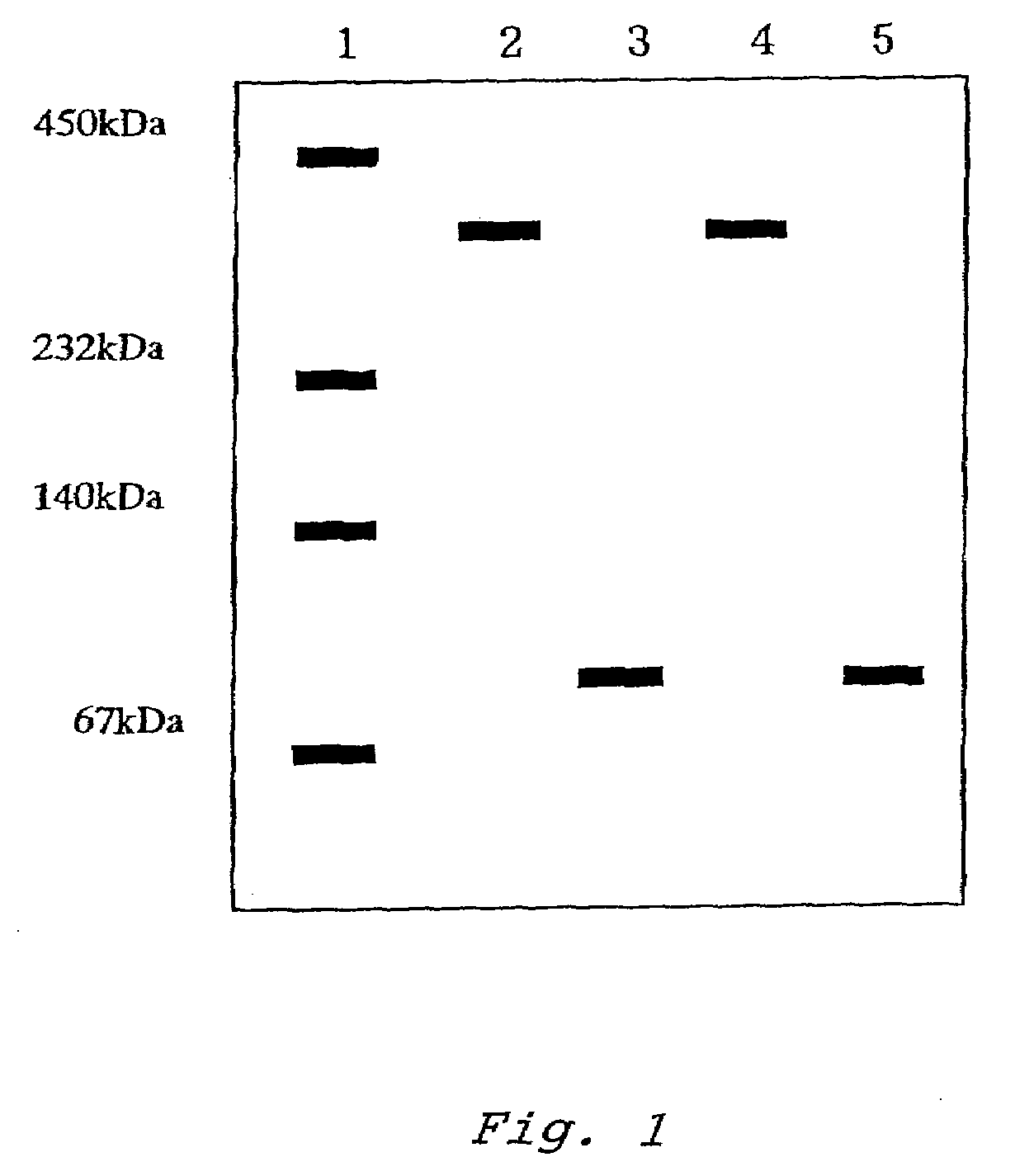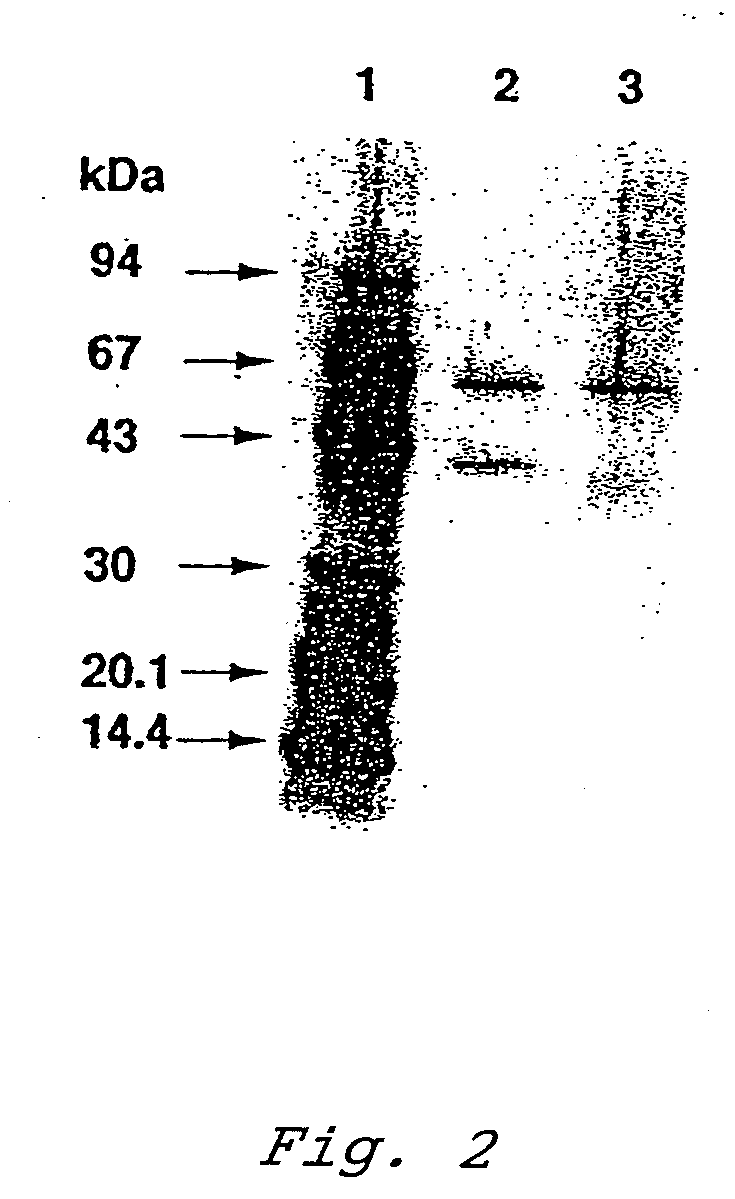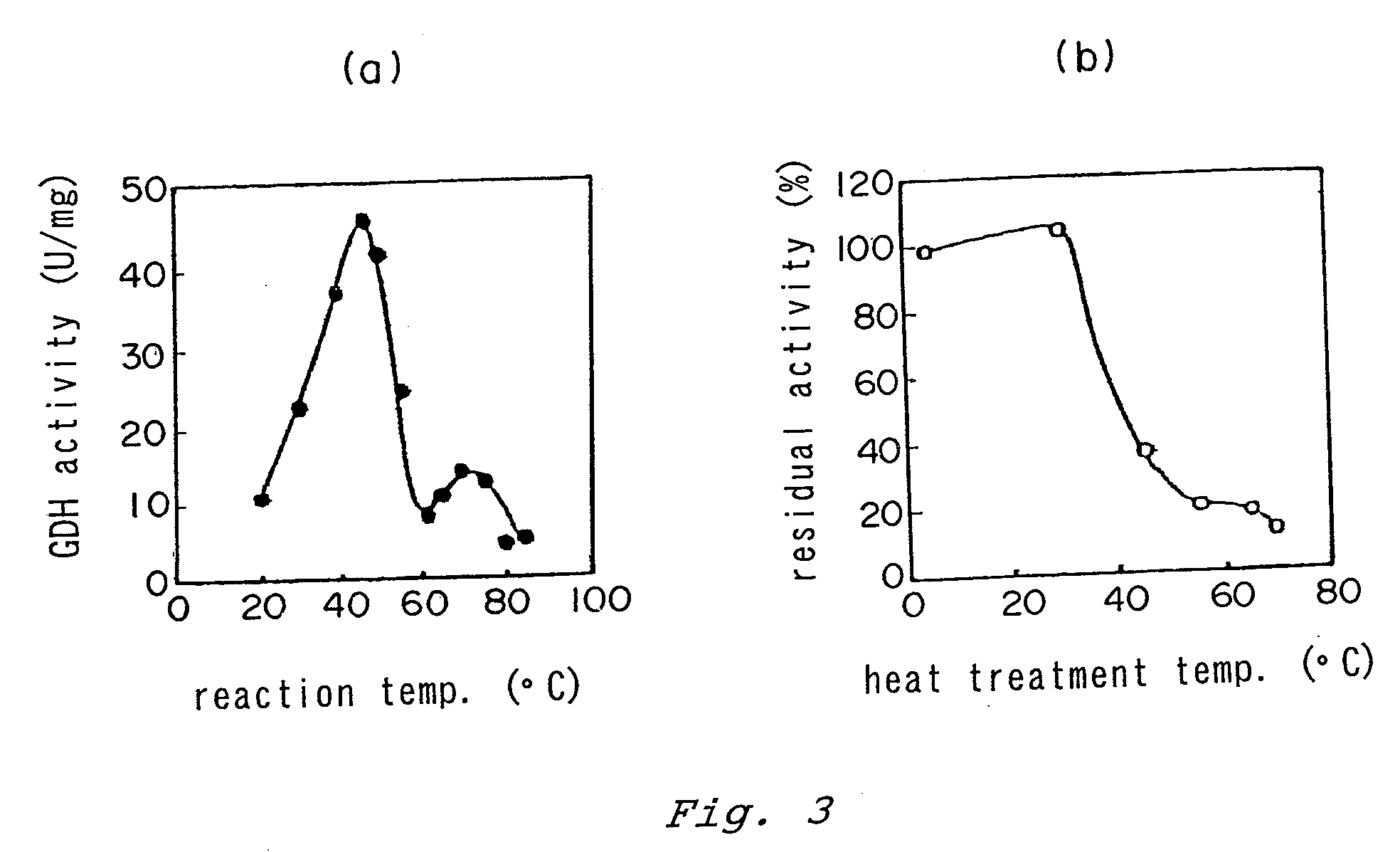Novel glucose dehydrogenase and method for producing the dehydrogenase
- Summary
- Abstract
- Description
- Claims
- Application Information
AI Technical Summary
Benefits of technology
Problems solved by technology
Method used
Image
Examples
example 1
Acquisition of Bacterium Having Glucose Dehydrogenase Producing Ability
[0095]The microorganism of the present invention was obtained by collecting soil near various hot springs in Japan and selecting a bacterium having a glucose dehydrogenase activity among bacteria utilizing glucose as a nutrient from the soil.
[0096]The results of investigation of morphological characteristics, growth characteristics and physiological characteristics of this strain are shown below.
[Bacteriological characteristics]Gram stainingnegativeCell morphologyrod-shapedWith polar flagellumMobilitypositiveNumber of fragments>5Optimal growth temperature45° C.OxidasenegativeCatalasepositiveProduction of acetoinnegativeProduction of H2SnegativeProduction of indolenegativeAcid from glucosepositiveArginine dihydrolasenegativeUreasenegativeβ-GlucosidasenegativeProteasenegativeβ-GalactosidasepositiveLysine carboxylasenegativeOrnithine carboxylasenegativeReduction of nitratepositive[Assimilation characteristics]Glycer...
example 2
Extraction of Glucose Dehydrogenase
Culture of Cells
[0100]As the culture conditions of the bacterium, usual aerobic culture conditions were used. The cells were cultured at 34° C. for 8 hours in 7 L of a medium containing the following ingredients per liter.
Polypeptone10gYeast extract1gNaCl5gKH2PO42gGlucose5gEinol (ABLE Co., Tokyo, Japan)0.14gTotal volume including distilled water1LAdjusted pH7.2
[0101]In a volume of 7 L of the culture broth was centrifuged at 9,000×g at 4° C. for 10 minutes to obtain about 60 g of cells.
Preparation of Roughly Purified Fraction
[0102]In an amount of 60 g of the cells were dispersed in 10 mM potassium phosphate buffer (pH 6.0), and a pressure difference of 1,500 Kg / cm2 was applied to the cells by using a French press (Otake Corporation, Tokyo, Japan) to disrupt cell membranes. The cell extract was centrifuged at 8000×g for 10 minutes to remove cellular solid. Further, the supernatant was subjected to ultracentrifugation at 69,800×g at 4° C. for 90 min...
example 3
[0108]Native PAGE electrophoresis was performed for the purified enzyme. The electrophoresis was performed on 8 to 25% polyacrylamide gradient gel using a Tris-alanine buffer system containing 1% Triton X-100. The gel was stained with silver nitrate. As protein markers, thyroglobulin (669 kDa), ferritin (440 kDa), catalase (232 kDa), aldolase (158 kDa), bovine serum albumin (67 kDa), ovalbumin (43 kDa) and chymotrypsinogen A (25 kDa) were used.
[0109]Further, activity staining was performed for the native PAGE gel by incubating the gel in the following solution for 30 minutes. At GDH activity sites, nitroblue tetrazolium was reduced and formazan was produced, resulting in development of dark purple color.
200 mM glucose0.1 mM nitroblue tetrazolium0.3 mM phenazine methosulfate20 mMTris-HCl buffer (pH 8.0)
[0110]From the results of the silver staining in the native PAGE, it was estimated that the enzyme consisted of a single kind of enzyme and had a molecular weight of about 400 kDa. Fur...
PUM
| Property | Measurement | Unit |
|---|---|---|
| Molar density | aaaaa | aaaaa |
| Molar density | aaaaa | aaaaa |
| Molar density | aaaaa | aaaaa |
Abstract
Description
Claims
Application Information
 Login to View More
Login to View More - R&D Engineer
- R&D Manager
- IP Professional
- Industry Leading Data Capabilities
- Powerful AI technology
- Patent DNA Extraction
Browse by: Latest US Patents, China's latest patents, Technical Efficacy Thesaurus, Application Domain, Technology Topic, Popular Technical Reports.
© 2024 PatSnap. All rights reserved.Legal|Privacy policy|Modern Slavery Act Transparency Statement|Sitemap|About US| Contact US: help@patsnap.com










